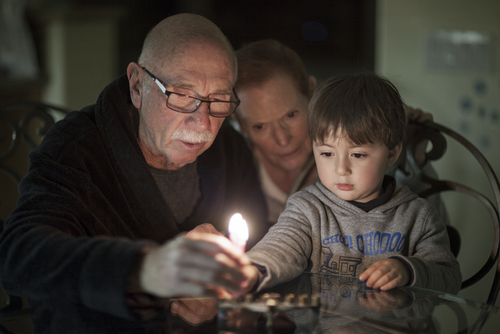
In the Jewish tradition, caring for the elderly is of the highest priority. This means total respect, embracing their hard-won wisdom, and seeking knowledge when necessary. When the elderly are approaching the end of life, there are traditions that family members and close friends can participate in to provide a comforting presence and honor their legacies.
In this post, we’ll discuss the ways that Jewish traditions can comfort the elderly before death. Read on to find out more.
1. Reciting Healing Prayers
When the possibility of death approaches, your loved one or family member will likely be in distress or low spirits. Therefore, reciting or singing the Mi Sheberakh prayer will help provide both comfort and reinforce a sense of unity.
This traditional Jewish healing prayer is not just a way to encourage the healing process, but also to strengthen their spirits. Anyone can recite this prayer alone, or in the company of loved ones.
If you prefer spontaneous, organic prayers, then speaking directly to God may also help them feel at ease. Asking God to help your loved one feel at peace can be a powerful and cathartic experience.
2. Humming Traditional Jewish Music
In all cultures, listening to music is a powerful and healing experience. This is especially true in Judaism. Playing loved one’s favorite music can be a restorative and unique experience, especially during this distressing time.
Humming Niggunim, or Jewish melodies without lyrics, creates an atmosphere a lot like the time spent worshipping at temple. This can be important, especially for people with a heavy involvement in religion or religious ceremonies.
Other live music can also cultivate a positive, joyous atmosphere. If the setting allows for it, live musicians can create a soothing environment for your loved one. While this isn’t always a plausible option, you can still sing your loved one’s favorite songs to him or her.

3. Reading Psalms
While everyone tends to have different preferences, reading psalms may remind your loved ones of their values and ethics. Scripture can reinforce religious teachings, and prominent religious figures who may have influenced them. This reminder is especially important during such a difficult time.
Phrases from these psalms will help your loved ones to thank and praise God. In doing so, you can help give them the inspiration they need to persist and remain in good spirits. Many Jewish people have psalms such as this inscribed upon their loved one’s monument as an epitaph.
Specifically, psalm 121 is a fitting choice for anyone who’s suffering. In this psalm, the speaker acknowledges and thanks God for his protection through life. Reciting this (or a similar) psalm to your loved one will help them to find a source of protection in this troubled time. It’s common for these psalms to serve as epitaphs on a loved one’s grave.
Similarly, reciting the viddui prayer will give your loved one an opportunity to renounce his or her sins. Offering the consolation of repentance, as well as the idea that faith and trust, the deathbed-specific viddui prayer can have an important impact in these final days.
4. Discuss Funeral Arrangements
While this is a difficult topic to discuss with anyone, funeral arrangements are difficult, costly, and time-consuming to make. If you’ve been tasked with this responsibility, then bringing this up may be natural. However, it’s important to learn whether or not anybody has taken any steps toward making arrangements.
First, you should learn whether or not the individual has purchased a burial plot. These are expensive plots of land, and depending upon family, religious preferences, and military service, their preference might vary. You can then discuss the cleaning of the body, an important step in the Jewish faith. You should also find out if they ordered a Jewish monument. If your loved one would prefer cremation to a traditional burial, this is also important information.
5. Purchase a Jewish Monument
As we mentioned before, final death arrangements can be difficult and time-consuming to make. This is especially true with ordering a Jewish monument. If you find that your loved one wants to be involved, then request their input. While some may prefer not to focus on something so morbid, others may prefer to alleviate this stress from you.
There are several decisions that you (or your loved one) must make when ordering the Jewish monument. First, you must select the size and material for the headstone. Granite and bronze are popular choices, given their popularity and durability. Next, the epitaph should convey an important message to everyone who visits the grave. So, it should be carefully selected with the individual in mind. Jewish headstone symbols can also play a meaningful role in the monument’s layout. Finally, choosing whether to order a double monument (for a spouse that has not passed) is also an important choice to make.

Making these choices carefully will help you to create a fitting monument, which will help you to reflect when visiting.
Jewish Monuments on Long Island
At Fox Monuments, we’re dedicated to helping families and friends overcome the death of a loved one. Our high-quality headstones are designed specifically for each individual. We’ll work to streamline this process for you, giving you the time you need to take care of other concerns. Most importantly, we’ll help to make a difficult time less stressful and painless for you and your family.